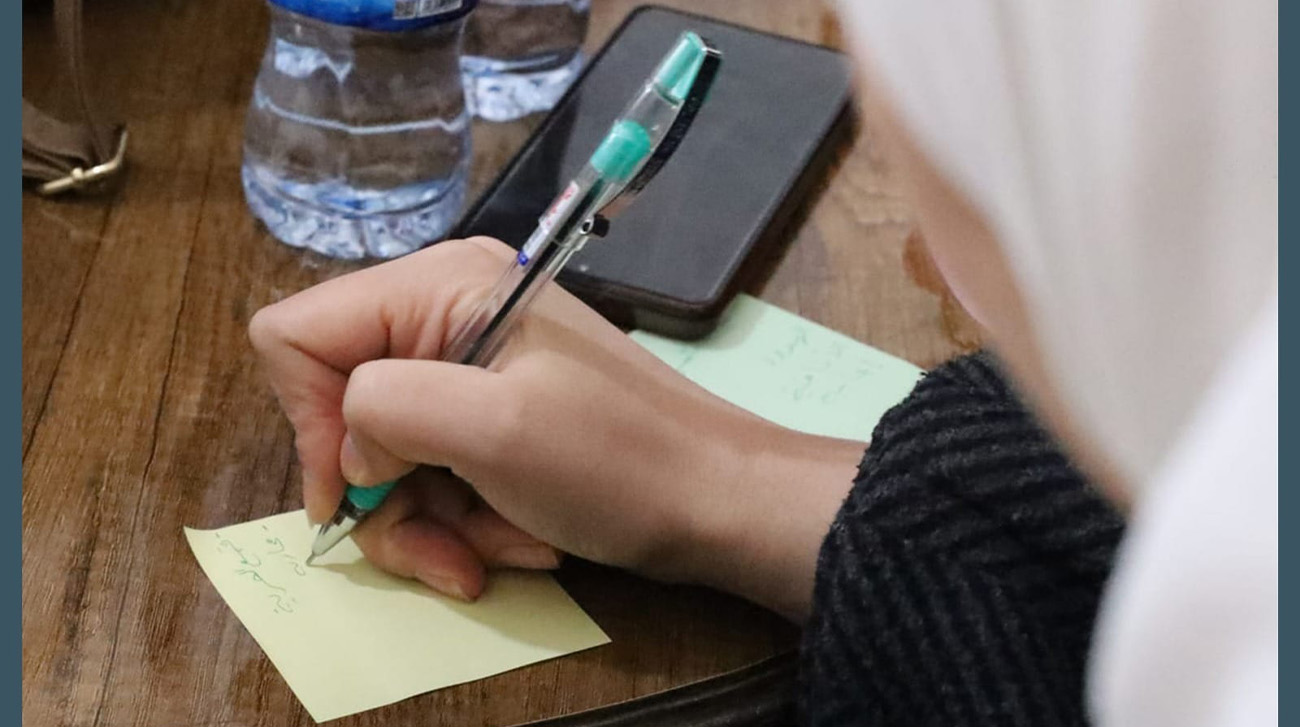
As part of the 16 Days Campaign to combat gender-based violence, Equity and Empowerment held a focused discussion session in northwest Syria. The session included training on creating a “problem tree” and posed the question, “What are the challenges that women in northwest Syria face that make them vulnerable to violence?” Some of the responses included:
Equity and Empowerment emphasized that the first step toward eliminating gender-based violence is encouraging women to raise their voices. By working through women’s bodies (groups and organizations), they aim to amplify women’s voices, support feminist institutions, and strengthen their work.
Empowering women is seen as a crucial step in the journey to eliminate this violence. Through training, campaigns, and raising awareness about the various forms of violence and their severe impacts on women, the goal is to support women’s rights and safety.
Campaign Story:
The 16 Days Campaign against Gender-Based Violence is an annual campaign starting on November 25, the International Day for the Elimination of Violence against Women, and runs until December 10, Human Rights Day. The campaign aims to raise awareness about gender-based violence and promote global efforts to end it. It includes awareness activities and community initiatives focused on empowering women and girls and providing support to survivors of violence.
Historical Background:
On November 25, 1960, the three Mirabal sisters—Patria, Minerva, and María Teresa—were killed by the police in the Dominican Republic. These political activists opposed the brutal systematic violence of the country’s dictator. The Mirabal sisters became a symbol of feminist resistance. In 1980, to commemorate their assassination, the UN declared November 25 a day to end violence against women in Latin America. The UN officially recognized this International Day in 1999.
According to UN statistics, 40% of women worldwide have experienced gender-based violence at some point in their lives, with this percentage increasing during times of crisis. Additionally, more than two-thirds of women subjected to violence are unable to access help.
Steps Toward Ending Gender-Based Violence:
The first step toward eliminating gender-based violence is encouraging women to speak up, working through feminist bodies to amplify women’s voices, and supporting feminist institutions to enhance their work.
Empowering women through training, campaigns, and raising awareness about the forms and dangerous impacts of violence on women is a crucial part of this effort.
As part of the 16 Days Campaign to combat gender-based violence, Equity and Empowerment held a focused discussion session in northwest Syria. The session included training on creating a “problem tree” and posed the question, “What are the challenges that women in northwest Syria face that make them vulnerable to violence?” Some of the responses included:
Equity and Empowerment emphasized that the first step toward eliminating gender-based violence is encouraging women to raise their voices. By working through women’s bodies (groups and organizations), they aim to amplify women’s voices, support feminist institutions, and strengthen their work.
Empowering women is seen as a crucial step in the journey to eliminate this violence. Through training, campaigns, and raising awareness about the various forms of violence and their severe impacts on women, the goal is to support women’s rights and safety.
Campaign Story:
The 16 Days Campaign against Gender-Based Violence is an annual campaign starting on November 25, the International Day for the Elimination of Violence against Women, and runs until December 10, Human Rights Day. The campaign aims to raise awareness about gender-based violence and promote global efforts to end it. It includes awareness activities and community initiatives focused on empowering women and girls and providing support to survivors of violence.
Historical Background:
On November 25, 1960, the three Mirabal sisters—Patria, Minerva, and María Teresa—were killed by the police in the Dominican Republic. These political activists opposed the brutal systematic violence of the country’s dictator. The Mirabal sisters became a symbol of feminist resistance. In 1980, to commemorate their assassination, the UN declared November 25 a day to end violence against women in Latin America. The UN officially recognized this International Day in 1999.
According to UN statistics, 40% of women worldwide have experienced gender-based violence at some point in their lives, with this percentage increasing during times of crisis. Additionally, more than two-thirds of women subjected to violence are unable to access help.
Steps Toward Ending Gender-Based Violence:
The first step toward eliminating gender-based violence is encouraging women to speak up, working through feminist bodies to amplify women’s voices, and supporting feminist institutions to enhance their work.
Empowering women through training, campaigns, and raising awareness about the forms and dangerous impacts of violence on women is a crucial part of this effort.